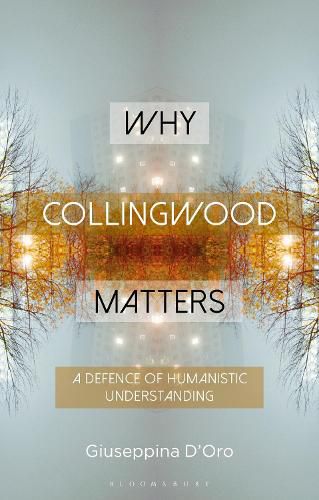Readings Newsletter
Become a Readings Member to make your shopping experience even easier.
Sign in or sign up for free!
You’re not far away from qualifying for FREE standard shipping within Australia
You’ve qualified for FREE standard shipping within Australia
The cart is loading…






R.G. Collingwood (1889-1943) was an English philosopher, historian and practicing archaeologist. His work, particularly in the philosophy of action and history, has been profoundly influential in the 20th and 21st century. Although the importance of his work is indisputable, this is the first book to consider how and why it actually matters.
Giussepina D'oro considers the importance of Collingwood as a thinker who thinks kaleidoscopically and, unlike lots of contemporary philosophers, refuses to focus on narrow, technical interests but instead, observes the whole world of thought. Why Collingwood Matters revives Collingwood's conception of the role and character of philosophical analysis and shows how it informs his understanding of the mind, what it means to act, and what it means to understand the past historically. It also argues for the relevance of his metaphilosophical approach to the challenge posed by the Anthropocene and the global environmental crisis.
Both an elucidation of Collingwood's thought and a lively exploration of it's contemporary relevance, Why Collingwood Matters provides a much-needed examination of a 20th-century polymath.
$9.00 standard shipping within Australia
FREE standard shipping within Australia for orders over $100.00
Express & International shipping calculated at checkout
R.G. Collingwood (1889-1943) was an English philosopher, historian and practicing archaeologist. His work, particularly in the philosophy of action and history, has been profoundly influential in the 20th and 21st century. Although the importance of his work is indisputable, this is the first book to consider how and why it actually matters.
Giussepina D'oro considers the importance of Collingwood as a thinker who thinks kaleidoscopically and, unlike lots of contemporary philosophers, refuses to focus on narrow, technical interests but instead, observes the whole world of thought. Why Collingwood Matters revives Collingwood's conception of the role and character of philosophical analysis and shows how it informs his understanding of the mind, what it means to act, and what it means to understand the past historically. It also argues for the relevance of his metaphilosophical approach to the challenge posed by the Anthropocene and the global environmental crisis.
Both an elucidation of Collingwood's thought and a lively exploration of it's contemporary relevance, Why Collingwood Matters provides a much-needed examination of a 20th-century polymath.